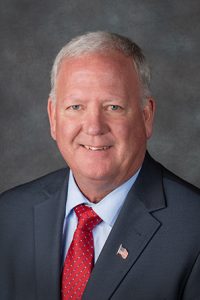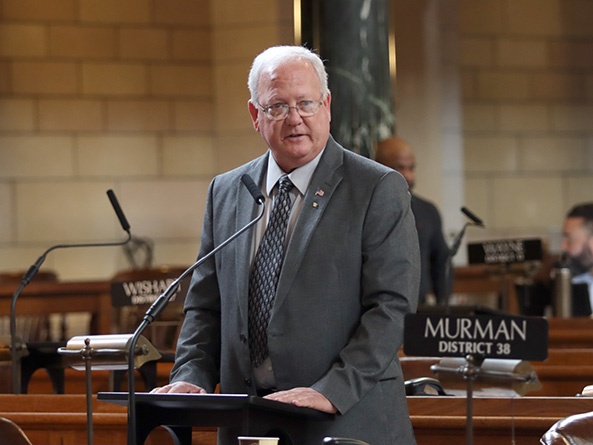Healthy soils learning community advances
A peer-to-peer learning community would help farmers adopt practices that protect Nebraska’s soil and water under a bill advanced from the first round of debate Feb. 24.
Under LB925, introduced by Creighton Sen. Tim Gragert, the state Department of Natural Resources would provide technical and legal assistance to a nonprofit, voluntary learning community led by agricultural producers that would foster skills and share knowledge related to healthy soil management.
The department also would hire a facilitator to help organize the learning community and help it acquire gifts, grants and sponsorships. The bill states legislative intent to appropriate $250,000 to the program for the next five years.
Gragert said Nebraska’s natural resources districts and other entities have succeeded in helping some producers adopt conservation practices — such as no-till farming, nutrient management and the planting of cover crops — that reduce soil erosion and help address high nitrate levels that have been associated with health problems in some areas of the state.
LB925 is intended to accelerate the adoption of such practices by connecting farmers with other producers who have implemented them on their own farms, he said.
The proposal also would require the department to divide the state into different regions representative of each area’s diversity of soils, topography, rainfall, cropping systems and other factors. It would authorize the department to lease private land for the purpose of establishing demonstration and research farms in those regions.
As introduced, the bill would require the department to submit an annual report to the governor and the Legislature’s Agriculture and Natural Resources committees beginning in 2022.
Gragert introduced an amendment, adopted 37-1, that would end the reporting requirement after 2027. He said the change reflects his intent that the learning community be self-funded after five years.
Omaha Sen. John Cavanaugh supported the bill, saying it would help preserve Nebraska’s vital water resources at a relatively low cost. Similar programs in other states have been successful, he said, and LB925 would allow producers to learn about conservation practices from fellow farmers if they are unwilling or unable to seek help from other programs.
“This is an efficient, intelligent, proven way to innovate on how we’ve done things in the past,” Cavanaugh said.
Sen. Mike Moser of Columbus opposed LB925, saying it points to the failure of government agencies, including NRDs, to better promote water and soil conservation practices. He said there is no guarantee that farmers would be more receptive to the proposed learning community.
“To me, it’s replacing a failed government program with another government program, thinking this one is going to be different,” Moser said. “All good intentions aside, generally, that’s not how it works.”
Henderson Sen. Curt Friesen also opposed the bill. He said Nebraska Extension and several commodity organizations promote soil health initiatives and work with producers who want to adopt best management practices.
“We’re trying to do it within the industry,” Friesen said, “and I’m not sure [LB925] is needed to get us there.”
Lawmakers voted 34-7 to advance LB925 to select file.


